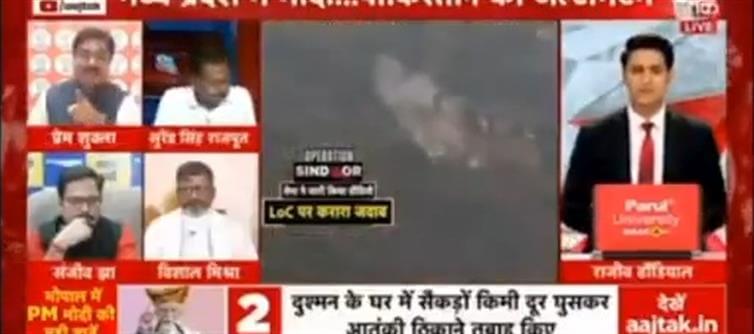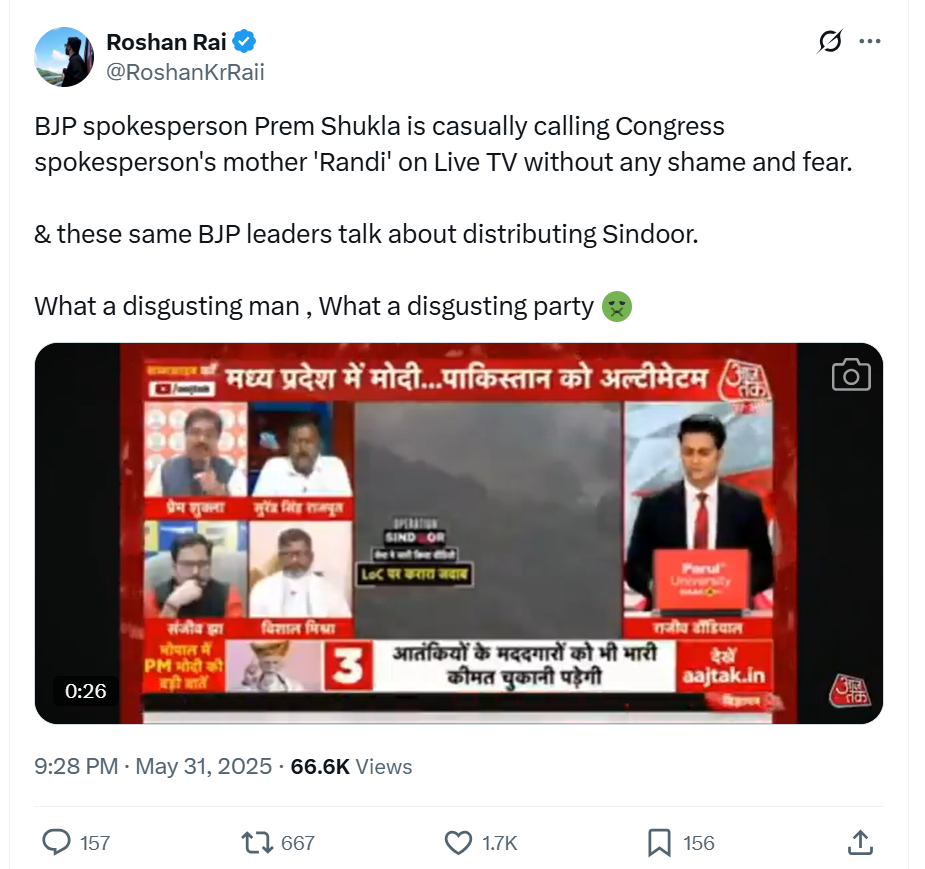
 BJP spokesperson Prem Shukla Calling Congress spokesperson's mother 'Randi' on Live TV - Disgusting!
BJP spokesperson Prem Shukla Calling Congress spokesperson's mother 'Randi' on Live TV - Disgusting!

What makes the situation even more troubling is the perceived impunity with which such statements are made. The normalization of vulgar, gendered abuse in political debates—especially against women or references to women—exposes the hypocrisy within certain political narratives. When the same leaders publicly speak about preserving cultural values, protecting women, or engaging in symbolic gestures like distributing sindoor (vermilion, a symbol of marital sanctity in Hindu tradition), yet behave in such degrading ways on public platforms, it becomes a glaring contradiction. These acts reveal that for some, traditional values are used more as a political costume than a genuine belief.
 The larger issue at hand is not just individual misconduct, but the cultural environment that allows such language to go unchecked. Political parties must take clear and public action against any spokesperson or leader who engages in abusive or sexist language, regardless of party affiliation. If no consequences follow such incidents, it sends a message that power absolves one from accountability. For democracy to function with dignity, the political debate must remain robust but respectful—focused on policies and ideologies, not on degrading personal attacks. The indian public deserves better than spectacle and slander; it deserves leadership that reflects the values it claims to protect.
The larger issue at hand is not just individual misconduct, but the cultural environment that allows such language to go unchecked. Political parties must take clear and public action against any spokesperson or leader who engages in abusive or sexist language, regardless of party affiliation. If no consequences follow such incidents, it sends a message that power absolves one from accountability. For democracy to function with dignity, the political debate must remain robust but respectful—focused on policies and ideologies, not on degrading personal attacks. The indian public deserves better than spectacle and slander; it deserves leadership that reflects the values it claims to protect.



 click and follow Indiaherald WhatsApp channel
click and follow Indiaherald WhatsApp channel